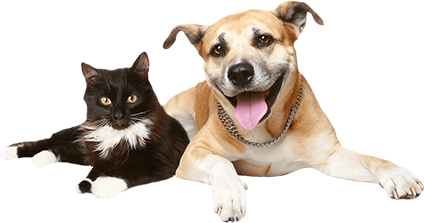A wholesome diet made from ingredients that are as natural and organic as possible is crucial to your dog or cat’s wellness. Choose from a raw frozen or premium canned food and avoid low-end commercial diets that include by-products, high grain content, and artificial additives. Round out his diet with plenty of fresh, pure water. Avoid city tap water – it’s full of chlorine. Use good spring or reverse osmosis water.
Your best buddy may also benefit from supplements to boost his wellness. Antioxidants such as vitamins E and C, grape seed extract and CoQ10 are important, as are Omega 3 essential fatty acids, found in salmon and flax oils. Probiotics and digestive enzymes enhance GI health. Consult a holistic vet before starting a supplement program.
Too many vaccines have been associated with a host of health problems in dogs and cats. Stick with the core vaccines for kittens and puppies and avoid annual boosters. The duration of immunity for core vaccines ranges five to nine years – that’s half a lifetime in most cases! The exception is rabies, which is currently required by law in most regions.
Regular exercise is as good for your animal as it is for you. It strengthens bones and immunity, oxygenates the blood and organs, and increases mental and emotional well being. Take your dog for a daily walk, or schedule an outdoor playtime. If you have an indoor cat, encourage a few short periods of play throughout the day.
Because your animal can’t talk, he can’t tell you when he’s experiencing unusual symptoms, especially if they’re subtle. Annual veterinary check-ups can catch potential problems before they become serious. It also gives you a regular chance to talk to a professional about the best way to ensure a long and healthy life for your companion.
A healthy mouth means a healthy body. Gum infections can spread to other body organs and cause serious disease. A proper diet, including raw meaty bones, goes a long way towards good dental health, but it’s also wise to regularly check his teeth and gums for problems, and if necessary, clean his teeth with a holistic dental product for animals.
A safe, stress-free environment is vital to your animal’s well being at all levels. Avoid using toxic household and lawn care products, including pesticides, and make sure your home and garden don’t pose any safety hazards. Be aware of and remove or minimize any elements or situations that may be causing your dog or cat emotional anxiety.
Grooming is something a lot of animal guardians overlook, especially if their companions have short hair. But regular bathing and brushing actually contribute to good health by helping to keep fleas away, getting rid of dirt and dead hair, and preventing skin problems. Brushing also spreads the natural oils over the hair and massages the skin.
Just like kids, dogs and cats can develop bad habits if they’re not taught how to behave, and that causes tension for everyone. Make positive training an integral part of your companion’s daily life (consult a professional if you need help). Gentle, reward-based training ensures good behavior and a relationship free of conflict and power games.
Last but far from least, your dog or cat needs loads of love and attention. It’s easy to get side-tracked by our jobs and lives, but make sure you spend quality time with your animal every day, petting him, relaxing with him, and telling him how much you appreciate the unconditional love and companionship he gives you. You’ll both benefit!
Animal Wellness Report – www.animalwellnessmagazine.com
Lorem Ipsum is simply dummy text of the printing and typesetting industry. Lorem Ipsum has been the industry’s standard dummy text ever since
